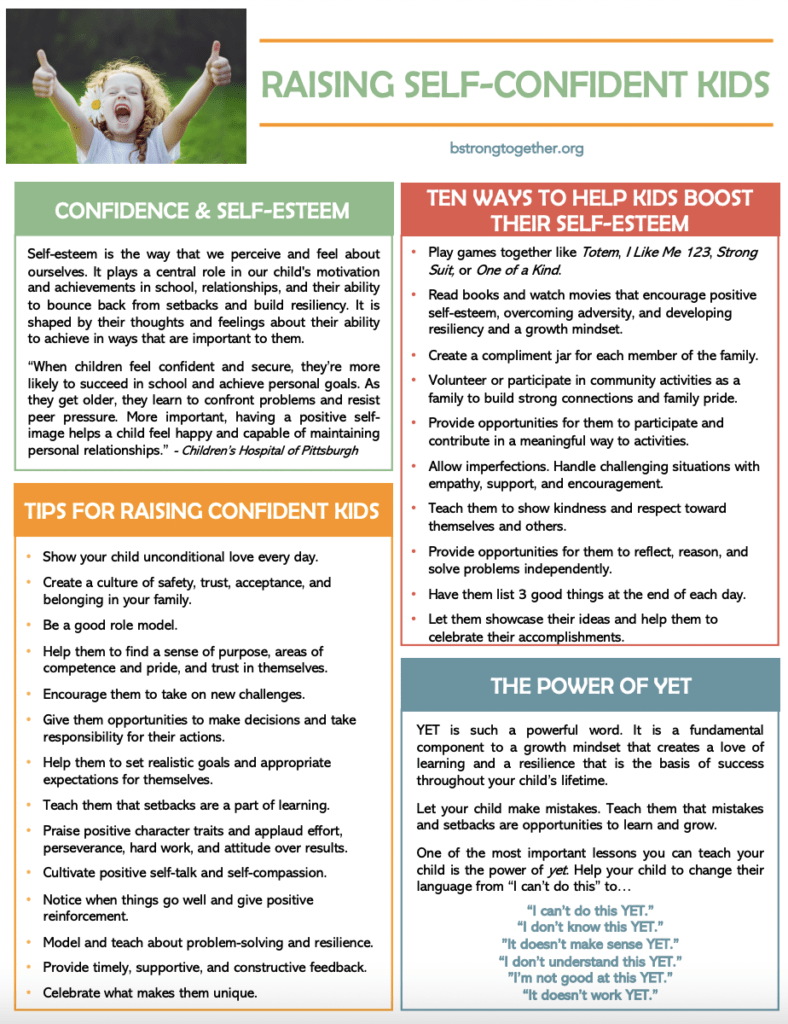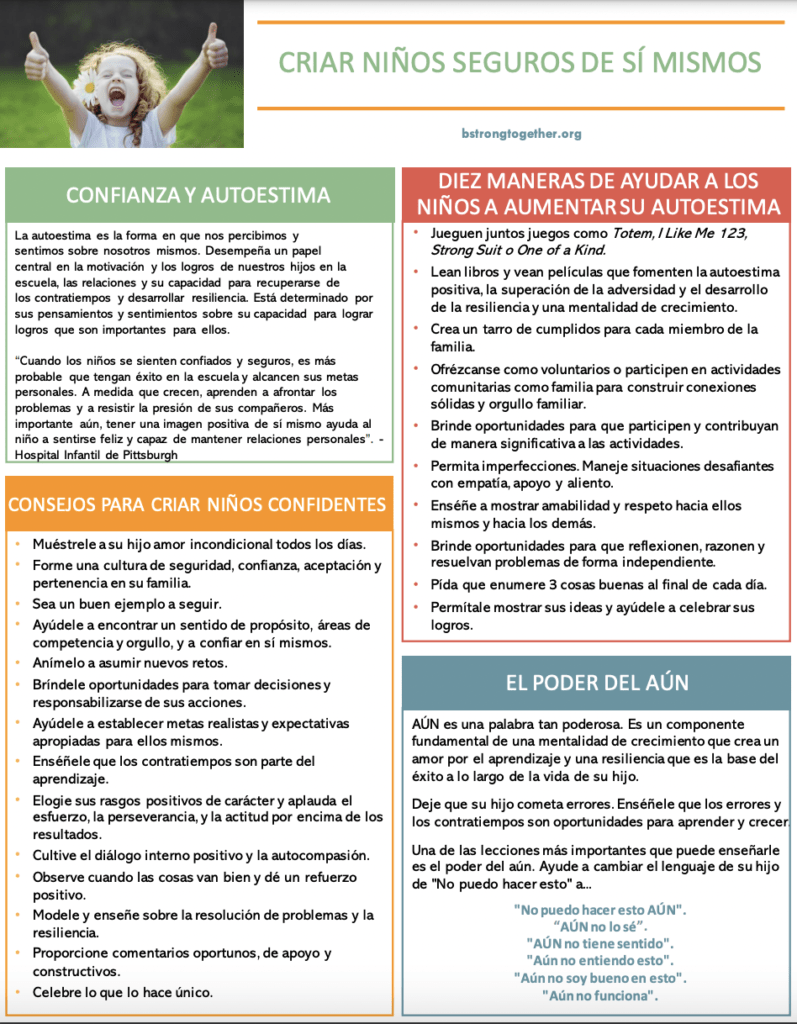
Raising Self-Confident Kids
by Kyle Kick
BStrong Together Executive Director
Confidence & Self-Esteem
Self-esteem is the way that we perceive and feel about ourselves. It plays a central role in our child’s motivation and achievements in school, relationships, and their ability to bounce back from setbacks and build resiliency. It is shaped by their thoughts and feelings about their ability to achieve in ways that are important to them.
“When children feel confident and secure, they’re more likely to succeed in school and achieve personal goals. As they get older, they learn to confront problems and resist peer pressure. More important, having a positive self-image helps a child feel happy and capable of maintaining personal relationships.” – Children’s Hospital of Pittsburgh
Tips for Raising Self-Confident Kids
- Show your child unconditional love every day.
- Create a culture of safety, trust, acceptance, and belonging in your family.
- Be a good role model.
- Help them to find a sense of purpose, areas of competence and pride, and trust in themselves.
- Encourage them to take on new challenges.
- Give them opportunities to make decisions and take responsibility for their actions.
- Help them to set realistic goals and appropriate expectations for themselves.
- Teach them that setbacks are a part of learning.
- Praise positive character traits and applaud effort, perseverance, hard work, and attitude over results.
- Cultivate positive self-talk and self-compassion.
- Notice when things go well and give positive reinforcement.
- Model and teach about problem-solving and resilience.
- Provide timely, supportive, and constructive feedback.
- Celebrate what makes them unique.

10 Ways to Help Kids Boost Their Self-Esteem
- Play games together like Totem, I Like Me 123, Totika, Strong Suit, or One of a Kind.
- Read books and watch movies that encourage positive self-esteem, overcoming adversity, and developing resiliency and a growth mindset.
- Create a compliment jar for each member of the family.
- Volunteer or participate in community activities as a family to build strong connections and family pride.
- Provide opportunities for them to participate and contribute in a meaningful way to activities.
- Allow imperfections. Handle challenging situations with empathy, support, and encouragement.
- Teach them to show kindness and respect toward themselves and others.
- Provide opportunities for them to reflect, reason, and solve problems independently.
- Have them list 3 good things at the end of each day.
- Let them showcase their ideas and help them to celebrate their accomplishments.
The Power of “Yet”
YET is such a powerful word. It is a fundamental component to a growth mindset that creates a love of learning and a resilience that is the basis of success throughout your child’s lifetime.
Let your child make mistakes. Teach them that mistakes and setbacks are opportunities to learn and grow.
One of the most important lessons you can teach your child is the power of yet. Help your child to change their language from “I can’t do this” to…
“I can’t do this YET.”
“I don’t know this YET.”
”It doesn’t make sense YET.”
“I don’t understand this YET.”
”I’m not good at this YET.”
“It doesn’t work YET.”


